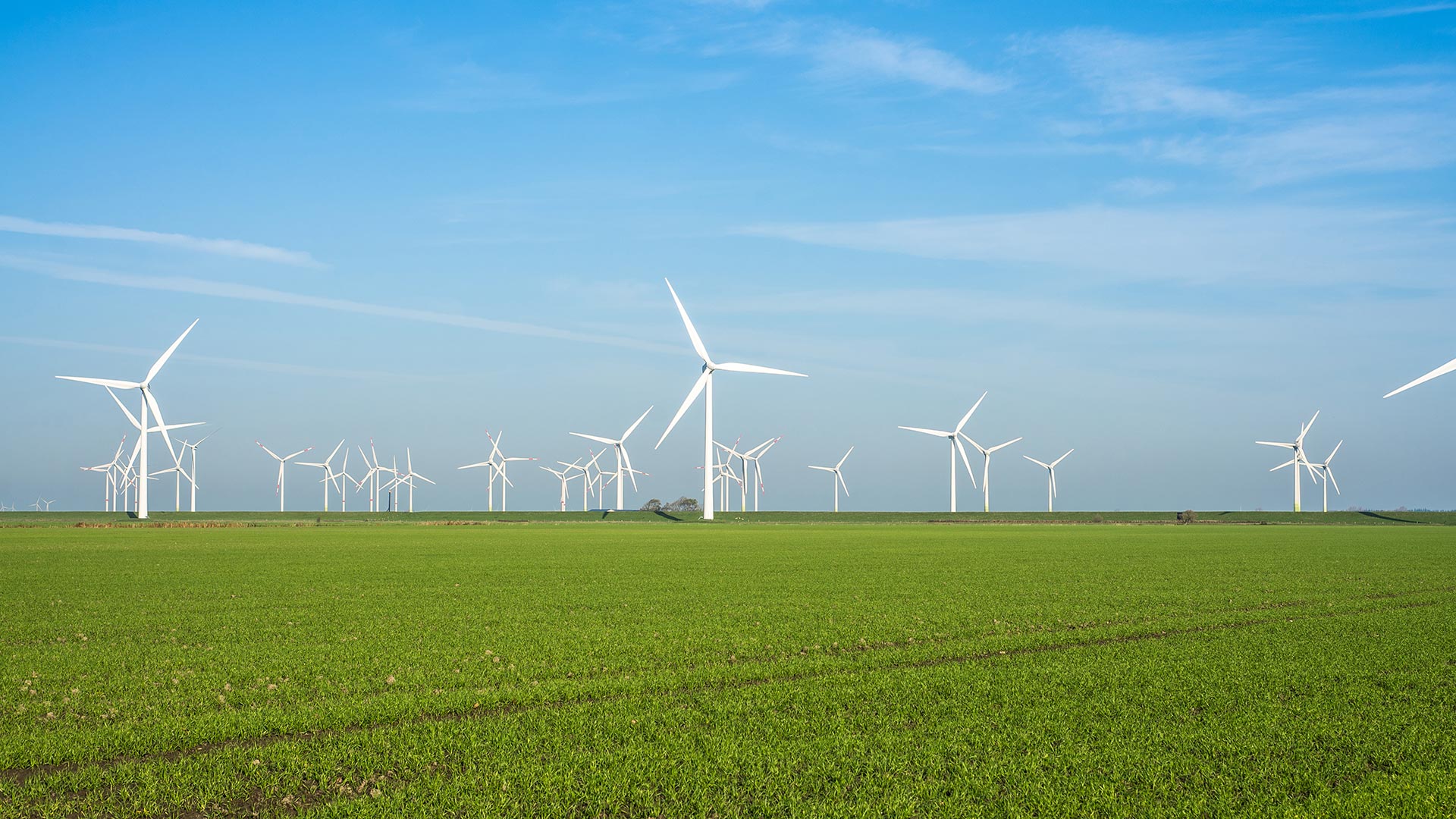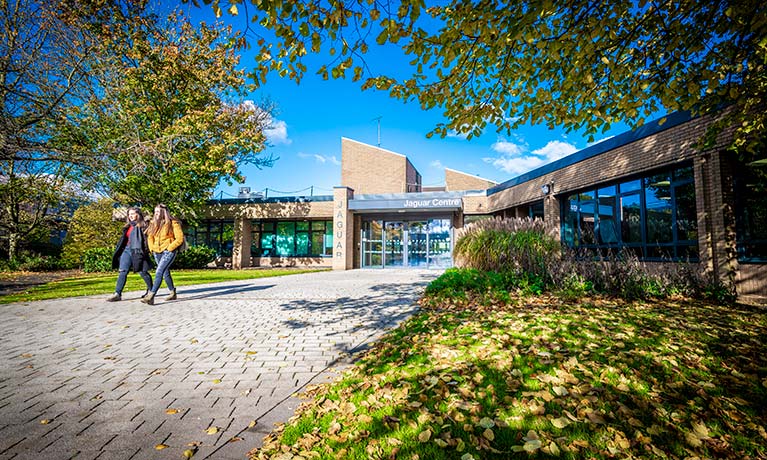Search
Renewable Energy Management MSc
Study level: Postgraduate
The MSc Renewable Energy Management course has been designed to equip you with the knowledge, skills and experience needed to access the growing renewable energy jobs markets and aims to help facilitate the global energy system transition.
Course features
Year of entry
Location
Coventry University (Coventry)
Study mode
Full-time
Sandwich
Duration
1 year full-time
2 years sandwich
Course code
EECT127
Start date
May 2024
Course overview
The ways that we currently source and consume energy need to be transformed if we are to avoid the worst consequences of climate and ecosystem breakdown.
- The challenge of transition is sizable. Some technological solutions do already exist, with the electricity sector transition well underway, and with wind, solar PV and electrification of heating and transport taking bold steps. Hydrogen, CCS and further energy efficiency improvements are also gaining prominence in the quest for a clean energy future. There should be plentiful career options post-graduation for those who master the wave of energy transition as it unfurls before us.
- The Renewable Energy Management MSc course aims to support persons looking to begin careers that will contribute to the affordable, reliable and sustainable delivery of energy for all. You will have the opportunity to develop skills to appraise renewable energy projects and explore how to strengthen governance structures to accelerate the decarbonisation process – within communities, organisations and nationally.
- You will have the option to apply for a ‘work placement’ opportunity2, designed to further develop your skills and knowledge with the aim of maximising your employability prospects. See modules for more information.
Joint Top Modern University for Career Prospects
Guardian University Guide 2021 and 20225 QS Stars for Teaching and Facilities
QS Stars University RatingsTop 5 UK Student City (Coventry)
QS Best Student Cities Index 2023Why you should study this course
- The global energy sector is changing, and the pace of change will increase as technology prices and policy support for clean energy solutions advance. This Renewable Energy Management MSc course has been designed to meet this challenge and features the very latest energy sector developments, ensuring you are well placed to take advantage of this fast-moving sector upon graduation.
- Given its importance, we devote a whole module to examining how we can model energy systems (supply and demand) so that strategic decisions can be made on technology options and future renewable energy roadmaps (e.g. how electric vehicles will fit into our future energy systems, which storage option/s to adopt, what approaches to space heating/cooling to explore, etc).
- In an ever more interconnected world, renewable energy professionals must be able to analyse their stakeholders' expectations and tailor their engagement approaches to meet the demands of different audiences, be they clients, organisations, communities, policymakers or other consultants. Our module on ‘Stakeholder engagement and communication’ aims to help you develop this critical skill, which is increasingly necessary for a successful career in the energy sector upon graduation.
- The course is designed to have a strong international dimension, with emphasis placed on understanding the different approaches to energy provision based on climatic, social and economic conditions. Our current staff have international industry and academic experience, which in the past has attracted a truly global student cohort. We encourage discussion and investigation of the various technical, environmental and geopolitical challenges facing our global energy systems.
- Modules are specifically designed to equip you with the skills necessary to immediately access the burgeoning renewable energy jobs markets, whether it be feasibility studies for renewable energy systems, energy officer/auditor roles within commercial/government organisations, or analyst roles with companies involved in energy markets. Assignments are predominantly based on applied, real-world tasks. Supported by staff with industry experience, you are given the flexibility to determine your final dissertation topic thus providing the opportunity for a stepping-stone towards your preferred career path (please note staff may be subject to change).
Accreditation and professional recognition
This course is accredited1 and recognised by the following bodies:

Chartered Management Institute
As part of this course, you will undertake a professional development module which is currently accredited by the Chartered Management Institute (CMI) for the 2023-24 intake. Upon successful completion of the module, you will gain the CMI Level 7 Certificate in Strategic Management and Leadership Practice at no additional cost. Further details can be found under the modules and on the Professional Development module webpage.
Memberships
Energy Institute (EI)
The School of Energy, Construction and Environment is a Learning Affiliate member of the Energy Institute (EI), which means all students within the school are eligible for free student membership during their studies and provides the opportunity for students to be plugged directly into the energy sector. Student membership with the EI could help you to boost your CV and may provide energy sector knowledge resources and the chance for potential networking/professional development opportunities. Find out more about the EI and its free student membership.
What you'll study
In addition to the technical content in the taught modules, you will study a series of modules designed to help you develop the personal attributes and academic and research skills to achieve your potential. These sessions provide an opportunity to address individual learning needs and areas for improvement.
Learning is further supported by studying with active researchers and senior and experienced energy sector practitioners and opportunities to join field trips and site visits2 that aim to support converting theory into practice.
With work placement pathway
The ‘With work placement’ opportunity2 enables you to apply in semester 1 for an optional work placement of up to 12 months, extending the duration of your master’s to 24 months. The placement provides an opportunity for you to develop expertise and experience in your chosen field with the aim of enhancing your employability upon graduation. The work placement would take place in semesters 3, 4 and 5.
Please note that the optional placement modules incur an additional tuition fee of £4,000. Placement opportunities may also be subject to additional costs, visa requirements being met, subject to availability and/or competitive application. Work placements are not guaranteed but you will benefit from the support of our Talent Team in trying to find and secure an opportunity. Find out more about the work placement option.
We regularly review our course content, to make it relevant and current for the benefit of our students. For these reasons, course modules may be updated.
How you'll learn
Teaching and learning methods may include:
- Lectures
- Seminars
- Tutorials
- Presentations
- Group projects
- Workshops
- Practical laboratory sessions
You will also have the chance to visit local renewable energy projects and businesses involved in the global energy transition2. These are included in the fees and are arranged by module leaders to meet needs.
This course can be studied on a full-time or part-time basis. Whilst we would like to give you all the information about our part-time offering here, it is tailored for each course each year depending on the number of part-time applicants. Therefore, the part-time teaching arrangements vary. Please request information about studying this course part-time.
Teaching contact hours
The number of contact hours may vary from semester to semester, however, on average, it is likely to be around 12-15 contact hours per week in the taught semesters. Additionally, you will be expected to undertake significant self-directed study each week, depending on the demands of individual modules.
Your project-based semester will be supervisor supported, self-directed study in the region of 20 hours per week.
As an innovative and enterprising institution, the university may seek to utilise emerging technologies within the student experience. For all courses (whether on-campus, blended, or distance learning), the university may deliver certain contact hours and assessments via online technologies and methods.
Since COVID-19, we have delivered our courses in a variety of forms, in line with public authority guidance, decisions, or orders and we will continue to adapt our delivery as appropriate. Whether on campus or online, our key priority is staff and student safety.
Assessment
This course will be assessed using a variety of methods which will vary depending upon the module.
Assessment methods include:
- Formal examinations
- Phase tests
- Essays
- Group work
- Presentations
- Reports
- Projects
- Coursework
- Individual assignments
Our mix of assessments offer you a range of opportunities to demonstrate your achievements against the learning outcomes. Assignments are designed to reflect the demands of industry and you may be asked to produce technical reports, energy audits, feasibility studies, public awareness material or policy briefings. Tutorial modules are designed to help strengthen your study skills and support mid-career students returning to education and those who are less familiar with assessment by coursework.
The Coventry University Group assessment strategy ensures that our courses are fairly assessed and allows us to monitor student progression towards achieving the intended learning outcomes.
Entry requirements
Typical offer for 2023/24 entry.
Fees and funding
2023/24 tuition fees.
| Student | Full-time | Part-time |
|---|---|---|
| UK, Ireland*, Channel Islands or Isle of Man | £11,200 | £4,000 (Work placement option additional fee) | Request fee information |
| EU | £11,200 | £4,000 (Work placement option additional fee) per year with EU Support Bursary** £18,600 | £4,000 (Work placement option additional fee) per year without EU Support Bursary** |
Not available |
| International | £18,600 | £4,000 (Work placement option additional fee) | Not available |
For advice and guidance on tuition fees3 and student loans visit our Postgraduate Finance page and see the university's Tuition Fee and Refund Terms and Conditions.
We offer a range of International scholarships to students all over the world. For more information, visit our International Scholarships page.
Tuition fees cover the cost of your teaching, assessments, facilities and support services. There may be additional costs not covered by this fee such as accommodation and living costs, recommended reading books, stationery, printing and re-assessments should you need them.
The following are additional costs not included in the tuition fees:
- Any optional overseas field trips or visits: £400+ per trip.
- Any costs associated with securing, attending or completing a placement (whether in the UK or abroad).
*Irish student fees
The rights of Irish residents to study in the UK are preserved under the Common Travel Area arrangement. If you are an Irish student and meet the residency criteria, you can study in England, pay the same level of tuition fees as English students and utilise the Tuition Fee Loan.
**EU Support Bursary
Following the UK's exit from the European Union, we are offering financial support to all eligible EU students who wish to study an undergraduate or a postgraduate degree with us full-time. This bursary will be used to offset the cost of your tuition fees to bring them in line with that of UK students. Students studying a degree with a foundation year with us are not eligible for the bursary.
Facilities
Our aim is to offer you sector-leading facilities4:

The Library
You will benefit from our support designed to help you succeed and our industry-relevant teaching and resources. These include our modern library and computing facilities, dedicated careers advice and Your Students’ Union.

Jaguar Centre
The Jaguar Centre has been specifically designed to provide facilities and services to support our postgraduate students including social spaces, computer suites and separate areas for small group study.

The Hub
The Hub is the centre of student campus life. It's also home to the Health and Wellbeing Centre, the Spirituality and Faith Centre, the Tank Studio, Student Success Coaches and the Enterprise Hub.
Careers and opportunities
We are seeing extensive divestment in the various fossil fuel sector, which will require simultaneous investment in clean energy systems. This change is already taking place and will need to keep doing so at an increasing rate. Successful graduates from this course will be well positioned to take advantage of jobs in positions such as energy officers, consultants, analysts, advisors, R&D, NGOs and government energy agencies, as well as the many oil and gas corporations that are now turning their sights on decarbonisation.
Upon successful completion of the course, you will be able to:
- Demonstrate a high-level understanding of the components that make up the global energy system, including energy sources, generation and integration technologies, supply chains, and end-uses (electricity, transportation, heating/cooling).
- Critically evaluate potential renewable energy and energy management projects, and subsequently support their planning, financing, management and operation within a changing energy market.
- Apply economic concepts, principles and tools to the energy sector, and understand how policy, standards, regulatory and legislative frameworks impact upon various factors within the energy sector.
- Understand the importance of and apply appropriate techniques in multi-stakeholder engagement, communication, and co-operation in aspects of policy, project implementation and management.
- Critically analyse the challenges and strategies (short-term and long-term) in transitioning towards decarbonised energy systems with focus on energy supply, efficiency/conservation, storage and disruptive technologies.
- Evaluate the issues and techniques involved in collecting, analysing and communicating energy data, and demonstrate research design and execution skills within renewable energy-related topics.
- Demonstrate personal skills and competencies expected of an energy sector professional, including operating within individual and team settings, including digital fluency and written, oral, visual, and numerical skills.
Where our graduates work
Previous graduates from our School have gone on to work as energy officers in industry, local authorities, government agencies, universities and consultancies. Others have undertaken further study leading to a PhD.
Graduate Immigration Route visa
Based on current information from the UK Government, international students whose study extends beyond summer 2021 may be eligible for a visa under the UK Government’s Graduate Immigration Route, which will enable students to stay and work, or look for work, in the UK at any skill level for up to two (2) years. Check the most up to date guidance available to check your eligibility and any updates from the UK Government before making an application or enrolment decision.




